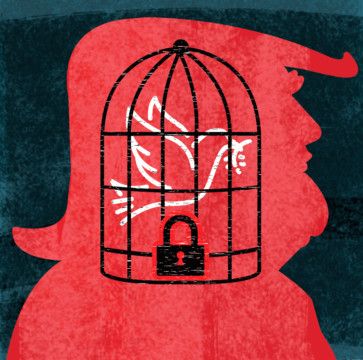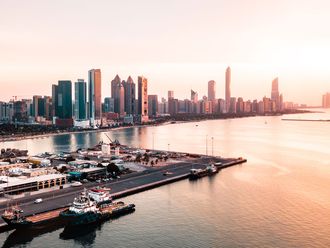
Recently US president Donald Trump dropped a bombshell: He had cancelled a planned secret meeting with President Ashraf Ghani and Taliban representatives scheduled at Camp David. He also appeared to suspend talks with the Taliban, scuppering a tentative agreement struck less than a week ago by his special envoy, Zalmay Khalilzad, after several rounds of negotiations.
The agreement called for the withdrawal of 5,000 of the 14,000 US troops remaining in Afghanistan, along with the closure of five bases, over the next 135 days, a prelude to the full withdrawal of US forces by the 2020 presidential election. For its part, the Taliban pledged to reduce, though not cease, its attacks, while also agreeing to enter into direct negotiations with the Afghan government.
The motives behind Trump’s decision are unclear. His tweets, for example, raise the concern that the Taliban may not be cohesive enough to honour a peace agreement. By this logic, the violence of the past week — including three new offensives in Kunduz, Baghlan and Farah provinces; a massive suicide bombing in Kabul; and the beheading of human rights commissioner Abdul Samad Amiri — are the work of various factions. This belief is probably a mistaken one; while there are differences of opinion among senior leaders, the Taliban remains a remarkably cohesive fighting force. There are also divisions within the Trump administration about the merits of Khalilzad’s tentative agreement, and whether too much was given to the Taliban in return for too little.
Camp David optics
It is also apparent that Ghani was furious with the agreement, having postponed and ultimately cancelled his proposed trip to Washington for the summit. Left without any credible assurances of US protection, Ghani faced entering negotiations with a surging Taliban but with little external support, a weak army and questionable legitimacy. Ghani’s concerns, and his apparent unwillingness to show at Camp David, may have forced Trump’s hand.
Set aside the optics of meeting the Taliban at Camp David close to the anniversary of the Sept. 11, 2001, attacks for a moment. Many analysts would probably view the decision to invite the Taliban to Camp David as a mistake, for several reasons. Such a move would bestow legitimacy on the Taliban at a time when it is only partly complying with the already modest terms of the initial agreement.
A summit is unlikely to shift the Taliban’s long-standing strategy of fighting while talking. Indeed, with Afghanistan’s presidential election slated for Sept. 28, there may be more violence as the Taliban seeks to undermine Afghan democratic institutions. Elevating the Taliban to coequal status also weakens Ghani on the eve of the election; if the Taliban is coequal, then why isn’t it running in the election, too?
The decision to cancel the summit publicly calls into question US credibility, while also weakening pro-peace factions within the Taliban. Bottom line: Trump’s tweets may have made peace even harder to obtain.But even if Camp David had proved successful, the road to peace remains long.
Four issues loom large.
1. How will Kabul play its weak hand?
Left unknown is how far Kabul will go to satisfy Taliban ambitions. As the US security blanket unravels, Kabul will be faced with tough choices about how to safeguard its political institutions and hard-won democratic gains? Will Afghan forces accept Taliban fighters into their ranks as part of a reintegration program? 2. What are the Taliban’s end goals?
We know in broad outline what the Taliban wants — the re-establishment of an Islamic Emirate of Afghanistan. However, its senior leadership has remained quiet about specifics; we don’t know whether the Taliban is willing to work within the existing political system, .
An emboldened Taliban leadership, fresh off defeating the United States at the negotiating table, might simply ignore calls for sharing power and press for outright victory. 3. What about potential spoilers?
Debate has focused on the Taliban’s willingness to honour a peace deal — but plenty of other challengers might sabotage an agreement. The biggest unknown, perhaps, is whether ordinary Afghans will accept a political compromise. While the United States tends to blame the Taliban for most of the violence in Afghanistan, there are worrisome local-level signs of revenge-seeking and score-settling by Afghans who have no Taliban connections.
4. What is the US role in postwar Afghanistan?
Despite Trump’s suspension of talks, it remains clear that the 2020 presidential election is weighing heavily on his administration’s negotiating stance. Less clear is what role the United States will play if the Taliban does renege on any future deal. Would the United States halt the troop drawdown, or turn a blind eye and hasten toward the exit?
We know the answers to none of these questions. Yet even if an agreement is eventually hammered out, over one-third of these power-sharing arrangements after civil wars may collapse into renewed conflict. The apparent absence of discussion about US policy toward a post-peace deal Afghanistan, or of the possible conditions under which US forces might return, means Washington may be caught off guard if another round of civil war ignites.
In short, peace remains elusive in Afghanistan — and Trump’s twitter diplomacy just made things even harder.
— Washington Post
Jason Lyall is James Wright Associate Professor in Transnational Studies and director of the Political Violence FieldLab at Dartmouth College.








